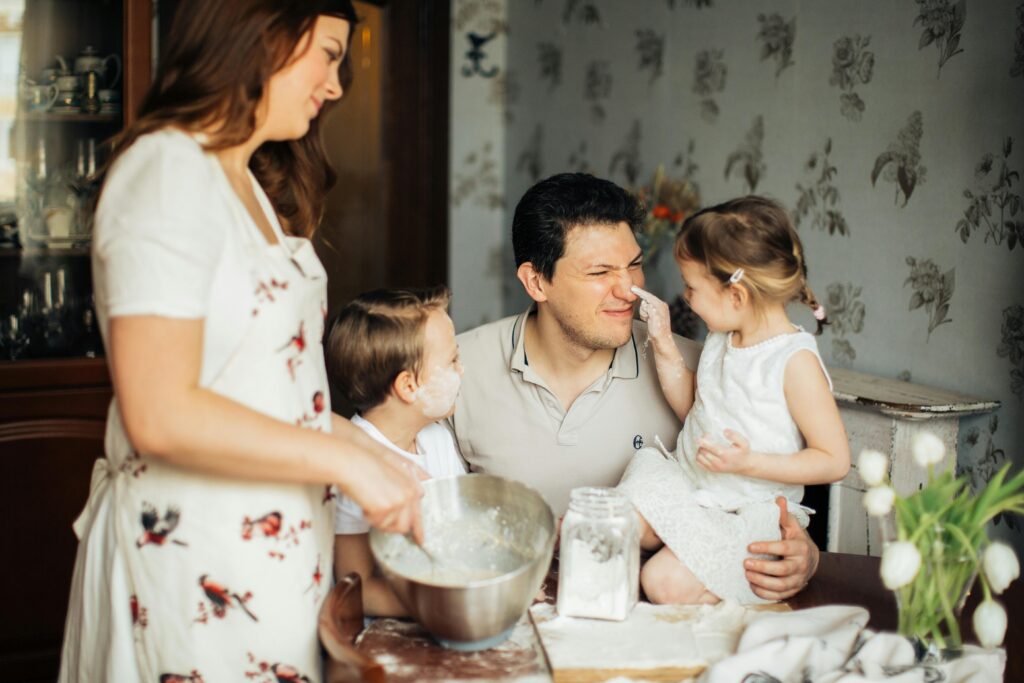The holiday season brings joy and treasured moments, but for neurodiverse children, it can also introduce unique challenges. As Thanksgiving, Hanukkah, and Christmas approach, we’re here to share seven effective strategies to Ease Thanksgiving Stress for Kids with Autism, to help parents create a celebration that’s memorable, comfortable, and meaningful for every member of your family.

Before telling you about the strategies, keep in mind the importance of encourage communication with your super kiddo this holiday season. Here are 4 effective ABA strategies that can help you.
1. Plan Ahead
Having a clear plan can make a world of difference for both parents and children. Use a family calendar with visual cues to highlight each event, providing a “countdown” for your child. Visual planning can help them mentally prepare, easing anxiety about upcoming changes. Remember, it’s completely okay to say “no” to some invitations if it helps keep your family’s holiday calm and manageable.
2. Keep Holiday Decor Simple
Holiday decorations are fun, but too many can be overwhelming for kids sensitive to visual stimuli. Instead, opt for a few, calming decorations and involve your child in choosing them when possible. This approach helps them adjust gradually and feel more at ease with the changes in their environment.
3. Serve Familiar Foods
Holiday meals can be a challenge for picky eaters, especially for kids on the autism spectrum. Include at least one dish you know they enjoy and consider bringing their favorite snacks if you’re dining elsewhere. This provides comfort and ensures they’ll have something familiar to eat.
4. Carry Comfort Items
Familiar items can help ease transitions and provide comfort in new settings. Consider packing a favorite toy, blanket, or even noise-canceling headphones to filter out any overwhelming sounds, helping your child feel safe and grounded.
5. Prepare for Transitions
Transitions can be challenging for children with autism, so aim to give them ample notice. Try phrases like, “In 10 minutes, we’ll leave for Thanksgiving dinner.” This consistency in communication helps prepare your child, easing the stress of moving from one environment to another.
6. Use Social Stories
Social stories can be powerful tools for guiding your child through upcoming events. Create a simple story that outlines what to expect, such as the sequence of activities and expected behaviors, and build in plans for breaks.
Not sure how to start? Your Board Certified Behavior Analyst (BCBA) can help develop one that fits your family’s needs, either during ABA therapy or as a resource to use at home.

7. Connect with Other Parents
You’re not alone on this journey. Connecting with other parents can be a great source of support, ideas, and encouragement. Explore online resources or local support groups, and check out organizations like Autism Speaks, The Autism Society of America, The National Autism Center, and The National Autism Association for family-friendly advice and community connections.
Your Super Kiddo’s Comfort Comes First
Each family has its own approach to managing holiday stress, and there’s no single solution that works for everyone. By adapting these strategies to suit your child’s unique needs, you can create a holiday season filled with joy, connection, and cherished memories.
Need Extra Support?
If you’d like assistance implementing any of these strategies, or if you’re interested in year-round support, don’t hesitate to REACH OUT. We’re here to help you every step of the way.
Together, we make it better!